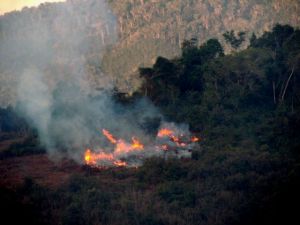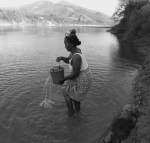The idea of this blog was conceived during a TBA workshop in 2011 on ecosystem services. So it just naturally follows that the first post remains in this field.
‘Never criticize a man until you’ve walked a mile in his moccasins.’
American Indian Proverb.
 Now how did I go from ecosystem services to American Indian tribes?In our field we hear about destructive practices by communities and may see it with our own eyes. Yet we know little until we get to meet these communities and make the effort to understand the why. All this knowledge and new ideas we are exposed to ,doesn’t it just remain ink on paper or pixels on our screen? Until applied and put into practice. There’s nothing like real-life experience for gaining new insights in conservation issues and allowing you to see things from a different angle.
Now how did I go from ecosystem services to American Indian tribes?In our field we hear about destructive practices by communities and may see it with our own eyes. Yet we know little until we get to meet these communities and make the effort to understand the why. All this knowledge and new ideas we are exposed to ,doesn’t it just remain ink on paper or pixels on our screen? Until applied and put into practice. There’s nothing like real-life experience for gaining new insights in conservation issues and allowing you to see things from a different angle.
During that particular workshop I discovered some new concepts. Here in my country we are disconnected from our terrestrial environment because there are no visible direct interactions- just like in so many other countries. The Tropical Mauritians forests: Scientific playgrounds! Yes serious studies are done as well as intensive conservation work but these forests remain an unknown, unfamiliar territory for Mauritians. Yet forests are more than playgrounds for nerdy people and there are so many documents and texts to tell you about it. But there’s nothing like seeing things with your own eyes- then all the knowledge that you have really make sense.
 Recently I was lucky enough to step into the world of the Antesaka community in South-eastern Madagascar. Together with some other volunteers we were to work with them on a forest conservation project where they are given the opportunity and the tools to manage their own forest. But beyond that specific role, we shared their life. With them I walked into the forests and saw their villages through the trees, completely isolated from the world but for the occasional sight of porters carrying bits and pieces of the modern world on their back or in pirogues. With them I also saw nearby forested hills visible from their yards.
Recently I was lucky enough to step into the world of the Antesaka community in South-eastern Madagascar. Together with some other volunteers we were to work with them on a forest conservation project where they are given the opportunity and the tools to manage their own forest. But beyond that specific role, we shared their life. With them I walked into the forests and saw their villages through the trees, completely isolated from the world but for the occasional sight of porters carrying bits and pieces of the modern world on their back or in pirogues. With them I also saw nearby forested hills visible from their yards.  I saw movement in and out of the forest for wood collection – wood needed to cook food, cooked with water fetched from nearby rivers with rice and other vegetables grown in surrounding fields. There I discovered a new environment where everything that you need comes from what is found around you.
I saw movement in and out of the forest for wood collection – wood needed to cook food, cooked with water fetched from nearby rivers with rice and other vegetables grown in surrounding fields. There I discovered a new environment where everything that you need comes from what is found around you.
 Some time before heading back home from Madagascar, I had been warned that there was drought in my home country. Now I do not come from a developed country but I have never really felt the water shortage back home. And now I had to wonder about my Antesaka family – what would happen there if there was drought? For having lived there, I know that consequences would be immediate. Loss of nature’s resources and services obviously has an impact on everybody but should we put humankind in a single box here? Some communities are clearly more vulnerable than others and I think that it is important to be more conscious of that and to work alongside these people.
Some time before heading back home from Madagascar, I had been warned that there was drought in my home country. Now I do not come from a developed country but I have never really felt the water shortage back home. And now I had to wonder about my Antesaka family – what would happen there if there was drought? For having lived there, I know that consequences would be immediate. Loss of nature’s resources and services obviously has an impact on everybody but should we put humankind in a single box here? Some communities are clearly more vulnerable than others and I think that it is important to be more conscious of that and to work alongside these people.
For those of you addressing the challenges linked with forest conservation or some other field, I invite you to leave aside your field boots and step into the world of those people living in your research location. The concerns of communities are too often ignored and not included in conservation actions and yet we can learn so much from them. Even more, they are the concrete physical reasons why we are trying to conserve nature’s resources.
As you go on to meet and work with these people, you are welcome to share your experiences and thoughts.
Fabiola Monty (Kibale 10/2)


This is lovely Fab
Great post Fabiola!. The contrast between the people who really know the value of ecosystems and those who do not are increasing fast, and unfortunately towards the latter. As we are more and more people without understanding that we are part of the biological systems and we depend on them, biodiversity will continue to disappear fast. The challenge of saving species and ecosystem is enormous, whenever in the Big Island or on the small islands like yours.